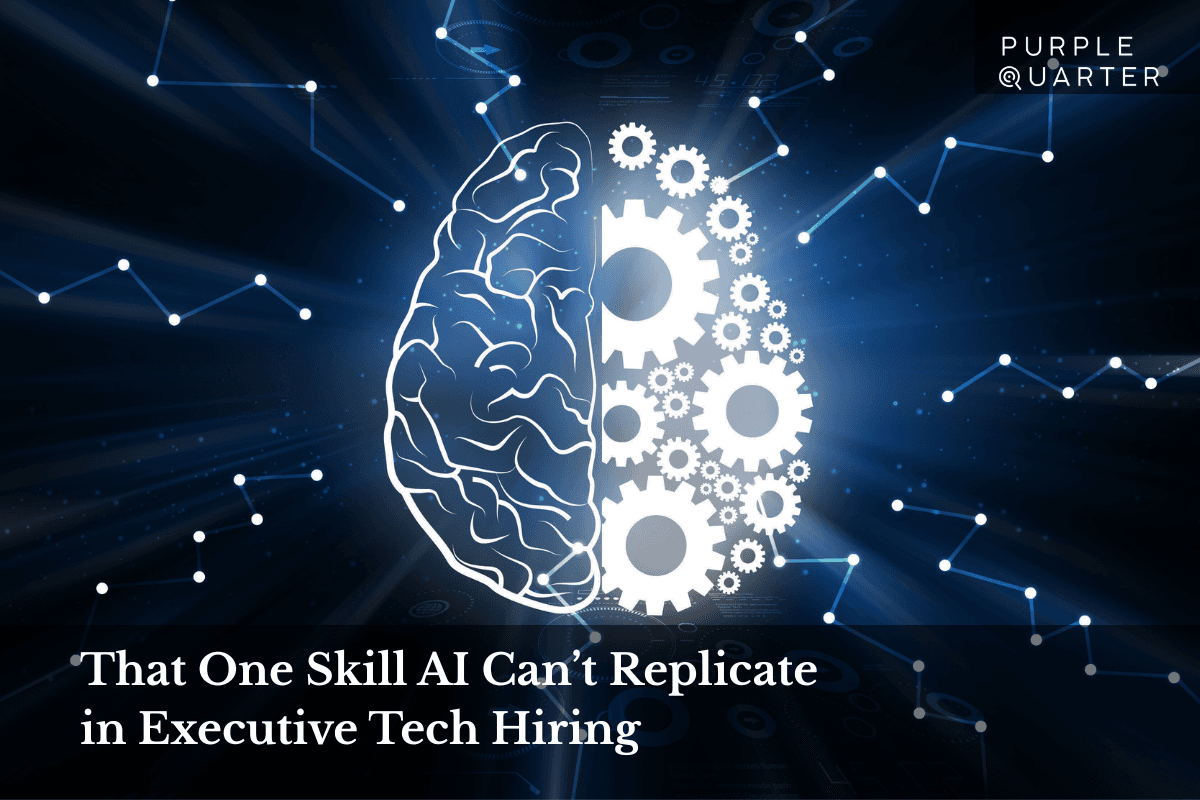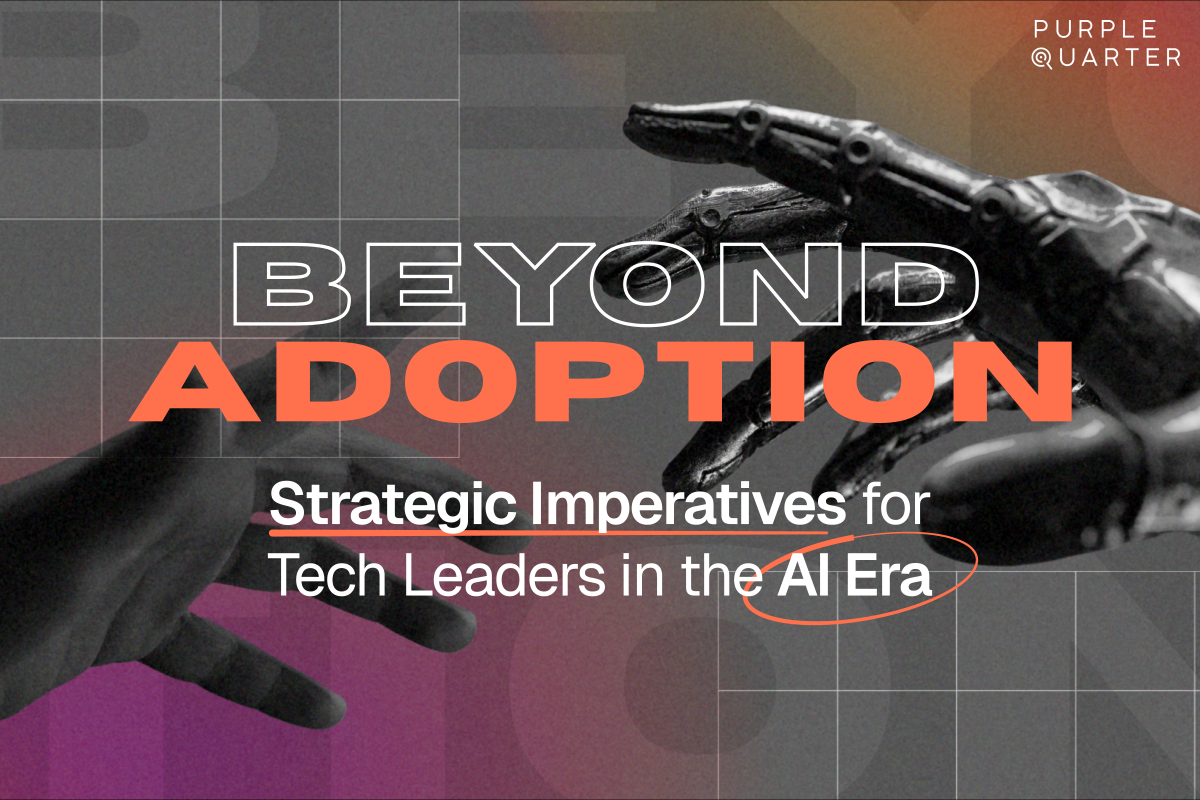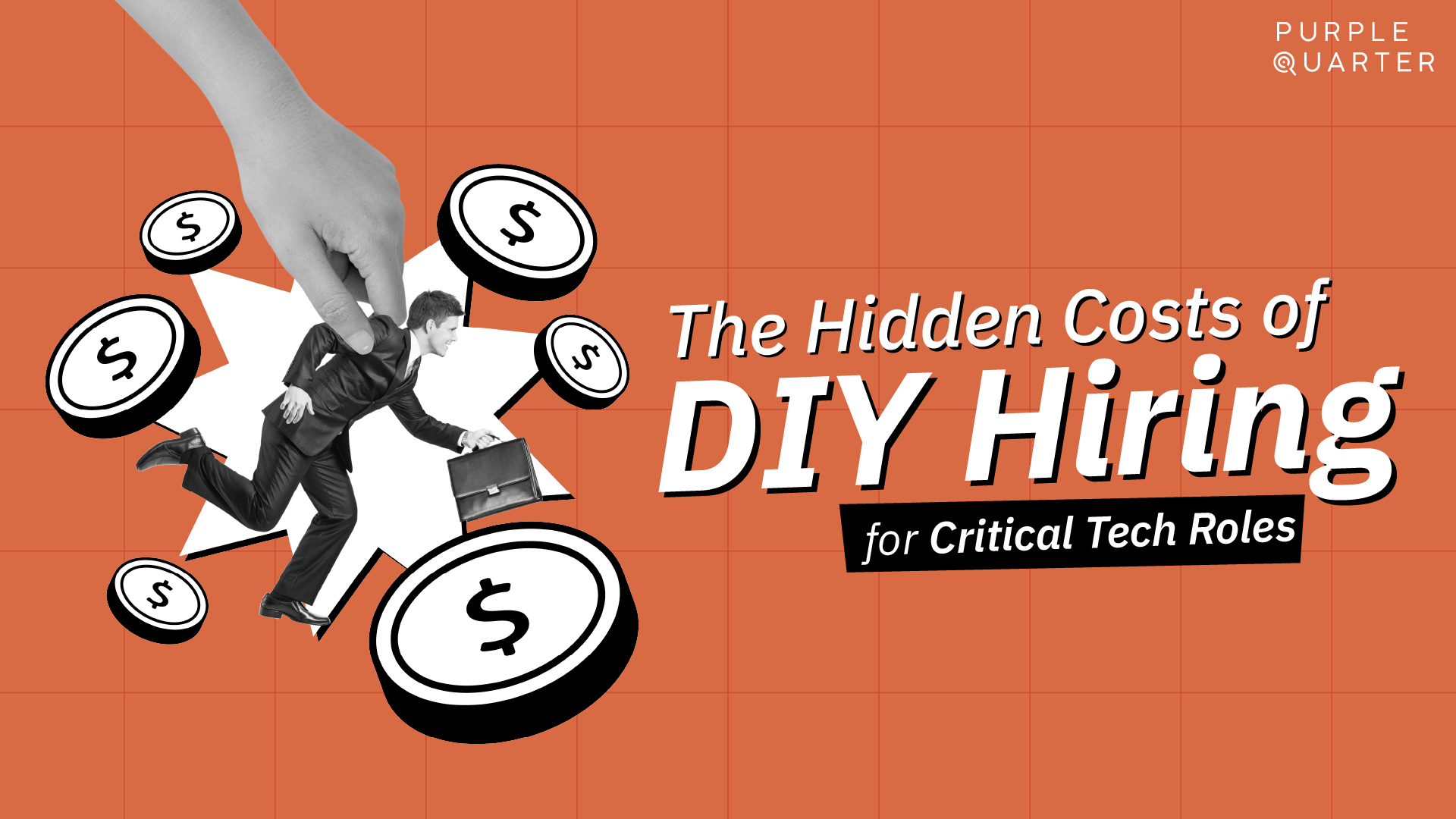
Billions of data points. Dozens of assessments. One wrong hire!
Despite the surge of AI integration in hiring today, nearly 40% of senior executives still fail within 18 months.
So… what’s missing? Intuition.
We saw it firsthand.
The CEO was clear: “Find me someone from retail. We need digital transformation, consumer-first thinking, fresh perspective.”
Six months later, they hired someone from healthcare instead.
What changed? We did something their algorithms couldn't – we read the room.
The Information Abundance Trap in Executive Tech Hiring
The executive tech hiring world is drowning in candidate data. Psychometric assessments, 360-degree feedback, AI-powered personality analysis, behavioural interviews, predictive scorecards. Everything gets measured, and measurement gets mistaken for understanding.
The result? Decision paralysis masquerading as thoroughness: insight isn’t always proportionate to information.
This is where smart hiring strategies separate the noise from the signal. The right approach isn’t about collecting more data—it’s about knowing what to do with it.
What Algorithms Miss (and Humans Feel) in Executive Tech Hiring
AI is unbeatable at pattern recognition. But the best leaders often don’t follow patterns. In fact, they defy them.
They’re the ones who:
Switched industries mid-career.
Took lateral moves that don’t make sense on paper.
Have unconventional career arcs: messy on paper, magnetic in person.
We call them Pattern Defiers: leaders who succeed because they don’t fit the mould.
Here’s what AI struggles to pick up:
Emotional Contagion: The invisible, contagious energy that great leaders transmit. You don’t read it in resumes, you feel it in the room.
Strategic Intuition: Acting decisively with imperfect information. This isn't luck. It's a honed instinct built from years of complexity.
Contextual Intelligence: The ability to sense which leadership style won’t fit the team, even when the candidate looks perfect on paper.
These are not soft skills, they’re survival skills in volatile environments. Hiring Pattern Defiers is not about gambling on chaos; it’s about identifying the conditions where their unconventional traits lead to outsized impact.
Contextual Alchemy in Leadership Hiring: The Missing Human Step
When it comes to leadership hiring, data tells you what someone has done. Intuition tells you what they can do, here, with this team, under these constraints.
A candidate might not rank top in any individual metric. But their traits might combine in unexpected ways to create exponential impact in the right context. Strategic thinking, moderate emotional intelligence, and domain knowledge scores might seem average on their own. But together, in the right org culture? Game-changing.
This is Contextual Alchemy: the human skill of building meaningful synthesis. And machines aren't good at that, yet.
The Meta-Skill That Distinguishes Great Hiring Solutions
This isn’t a humans-versus-machines story. AI is incredible at:
Candidate discovery
Resume filtering
Behavioural pattern detection
But AI is not so good at:
Interpreting silence in an interview
Detecting executive chemistry
Decoding unconventional career moves
The real differentiator is what we call the Meta-Skill: the ability to know when to lean on data and when to override it. Because the future of executive tech hiring isn’t all-data or all-instinct, it’s hybrid. But the judgment to decide which to trust when is all human.
That’s why bespoke hiring solutions don’t just deploy AI, they integrate it with intuition, culture-mapping, and deep industry context.
The Final 10%
At Purple Quarter, we actively use advanced behavioural models and data-backed frameworks to guide our search. But we also know their limits. Algorithms can narrow the field, highlight patterns, and offer insight; but they can’t make the final call. They support, not substitute.
In executive search, the final 10% of insight makes 90% of the difference. That 10% lives in conversations, non-verbal cues, contextual dynamics, and yes, gut feeling informed by experience.
So if your next tech leader doesn’t tick all the boxes, maybe that’s the point. Because leadership isn’t always found in the data. Sometimes, it’s found in the spaces between.
Authored by Soumi Bhattacharya
For more information, reach out to the Marketing Team


